How much do Christmas lights cost to run? Everything you need to know - and how to cut that price in half
Here's how much it costs to light up your tree over the festive period
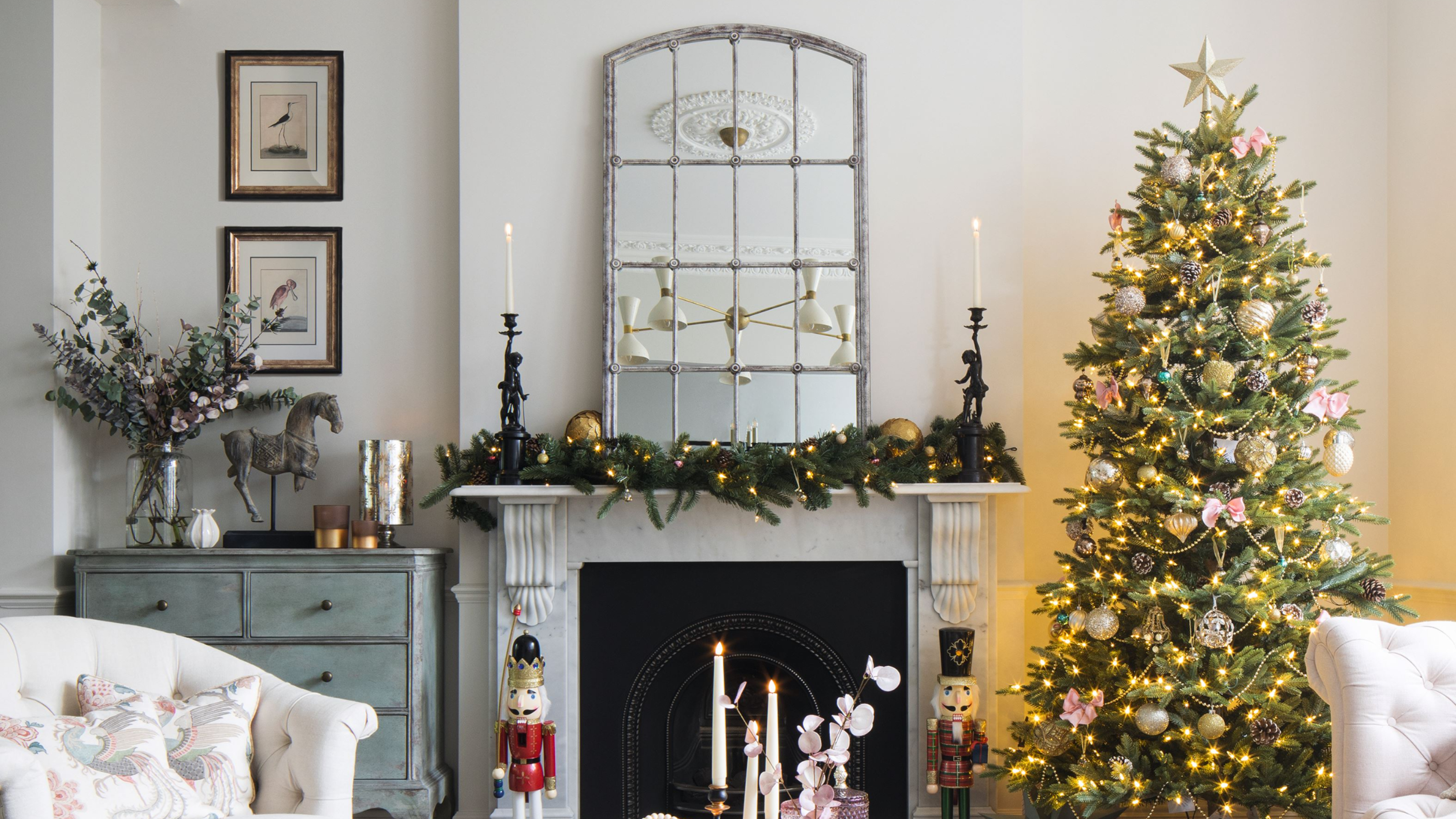

You probably don’t need us to tell you that Christmas is the most wonderful time of the year… but it’s also one of the most expensive. And if you’re worried about rising household bills, understanding how much Christmas tree lights cost to run can help you budget and save.
Whether you lean more towards the best artificial Christmas trees or are a tree purist and prefer to choose and care for a real Christmas tree, there’s no doubt that the best Christmas lights will add festive cheer to your home. But in a world where everything is getting more expensive and more and more people are trying to save energy at home, it’s important to understand that adding some twinkle to your Christmas tree doesn’t come for free.
So, how much do Christmas tree lights cost to run, really? We’ve done the maths for you, and you’ll be happy to know that it’s not as much as you’d think. You can even slash this price in half, too.
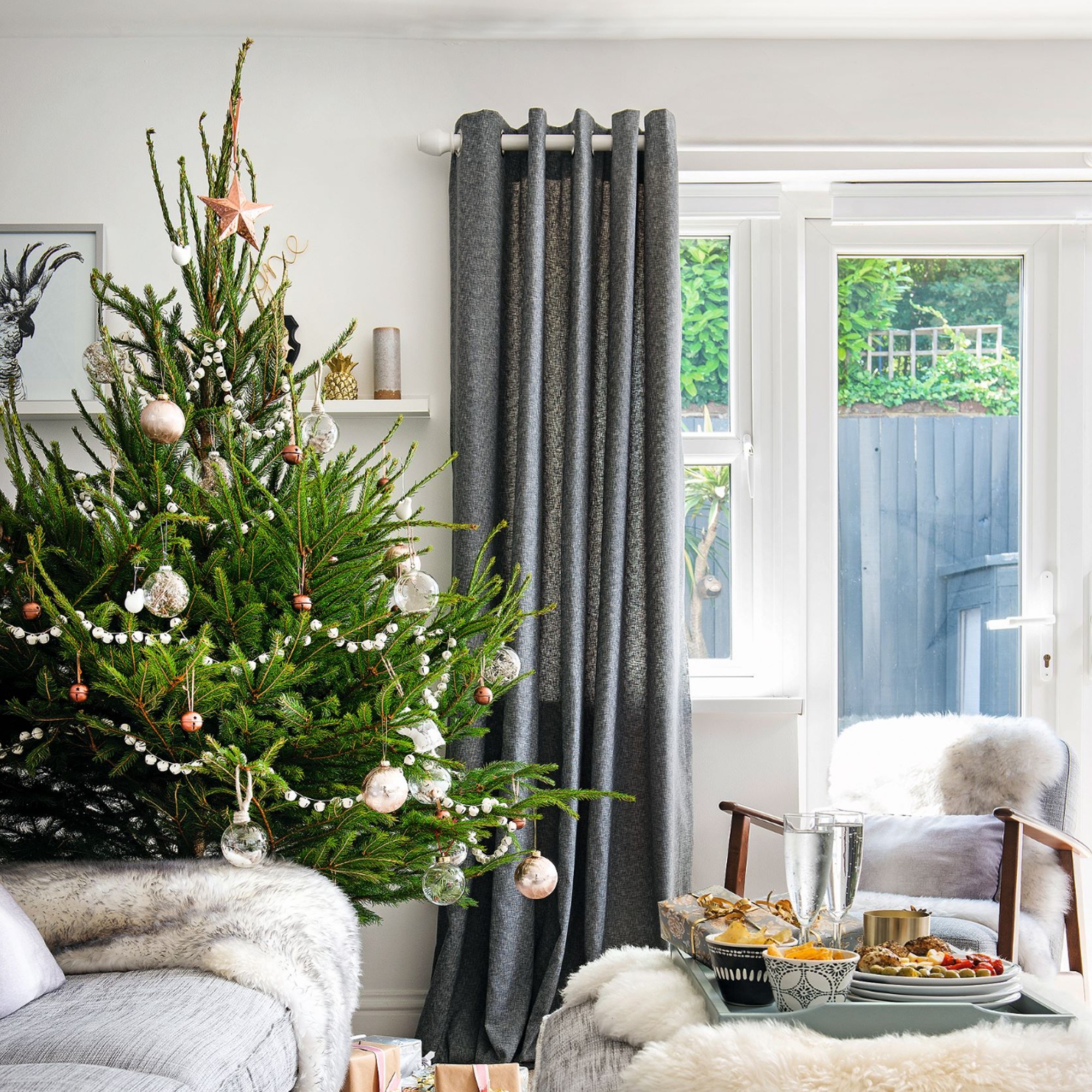
The cost of running Christmas tree lights
Calculating the exact cost of running Christmas tree lights isn’t a one-size-fits-all answer, as it ultimately depends on the size of your tree and how many lights you need for your Christmas tree.
However, Ava Pope, an energy-saving expert at Love Energy Savings, says that, on average, most people use two strings of 100 lights for their Christmas tree, adding up to 80 watts of energy. This is under the assumption that you're also using lights without LED bulbs.
Of course, you can find out the exact kWh of your specific set of lights by taking the wattage of each string of lights (typically found on the packaging) and dividing that number by 1000. So, Christmas tree lights that use 80 watts of energy will equate to 0.08kWh.
Then, you need to take into account how long these Christmas tree lights will be on to work out how much they’ll cost you to run per day. If your lights are left on for 6 hours daily, then 0.08kW x 6 hours will mean a 0.48kW output. You still need the current cost of energy to complete the equation, though.
Get the Ideal Home Newsletter
Sign up to our newsletter for style and decor inspiration, house makeovers, project advice and more.
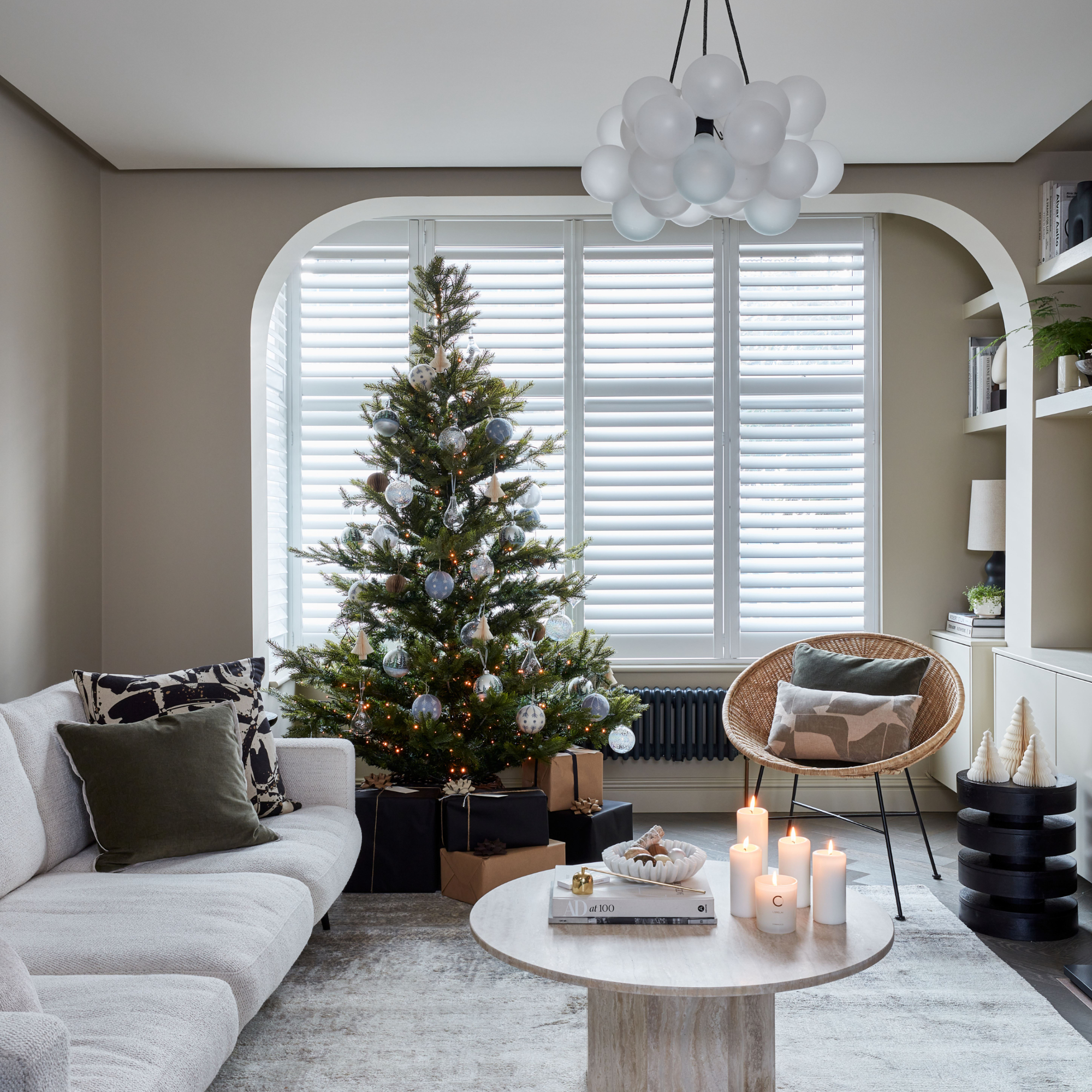
At the time of writing, and according to the October 2024 energy price cap, the cost of electricity is 24.50 pence per kWh - which we will round up to 25p for ease. Then, you can use the following calculation:
- Output (0.48kW) x Cost (0.25) = Cost per day (0.12/12p)
In the grand scheme of things, 12p to run Christmas lights each day isn’t a lot - especially as running them for 30-40 days over the whole festive period will set you back £3.60 - £4.80. But you need to remember that this is normally on top of other Christmas decorations and the cost of keeping your home warm in winter.
It’s also important to note that the cost of electricity will increase from 1st January 2025 as per the new energy price cap. So, if you plan on following tradition and expert advice to take your Christmas tree down on the 'Twelfth Night', just be warned that you’ll be paying extra for those five days under the new price cap.
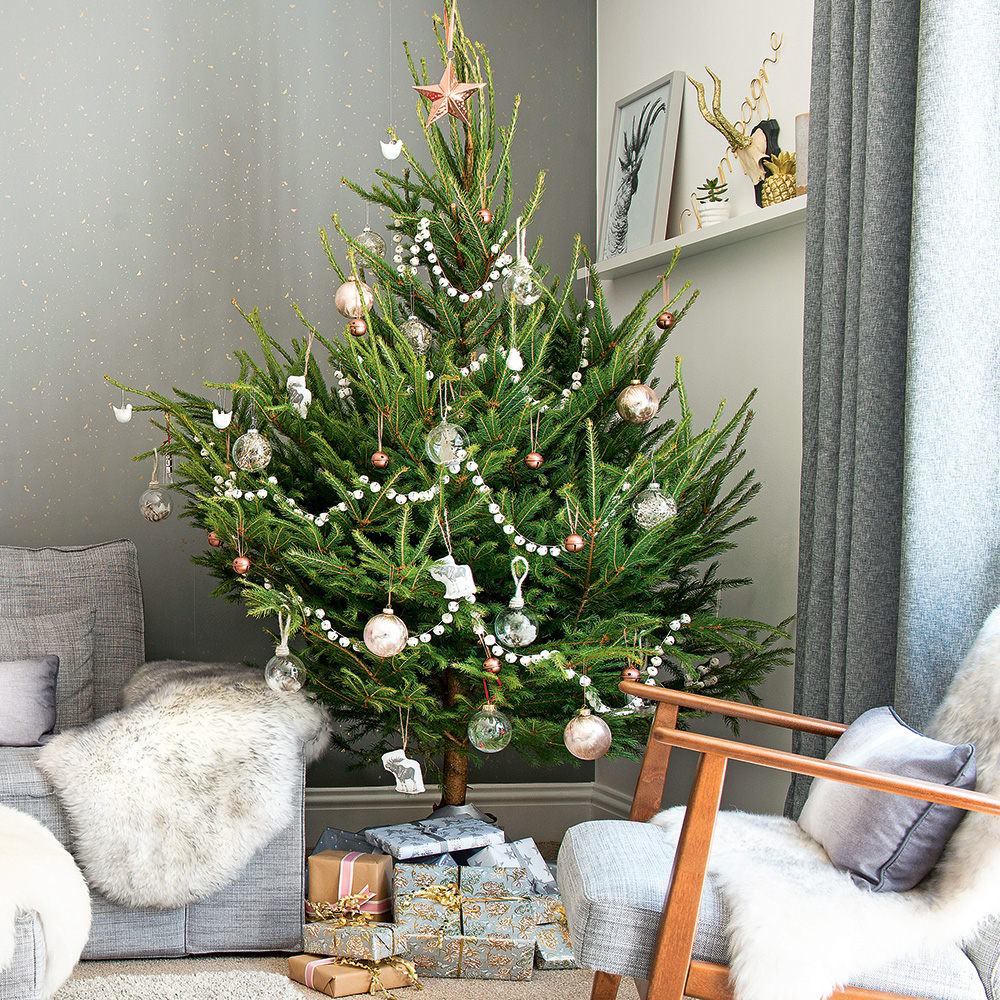
How to reduce the cost of running Christmas tree lights
We understand that being cost-efficient this festive period is important to many, hence the many budget Christmas decorating ideas we've seen floating around.
So, while the average cost to run Christmas tree lights throughout December and some of January comes out between £3 - £5, you’ll be happy to know there are ways to cut those costs without compromising on the cosy atmosphere that a twinkling tree gives at night.
1. Switch to LED Christmas lights

Nowadays, it’s not hard to find LED lights, but they can make a huge difference to the cost of running Christmas tree lights. James Longley, managing director at Utility Bidder, explains, ‘Simple changes such as using LED lights instead of non-LED lights can help to reduce your energy usage by 10%, going a long way to reducing costs.’
In fact, switching to LED Christmas lights can cost you as little as around 0.0002p per hour to run, equating to just 1 penny per week when left on for 6 hours a day.
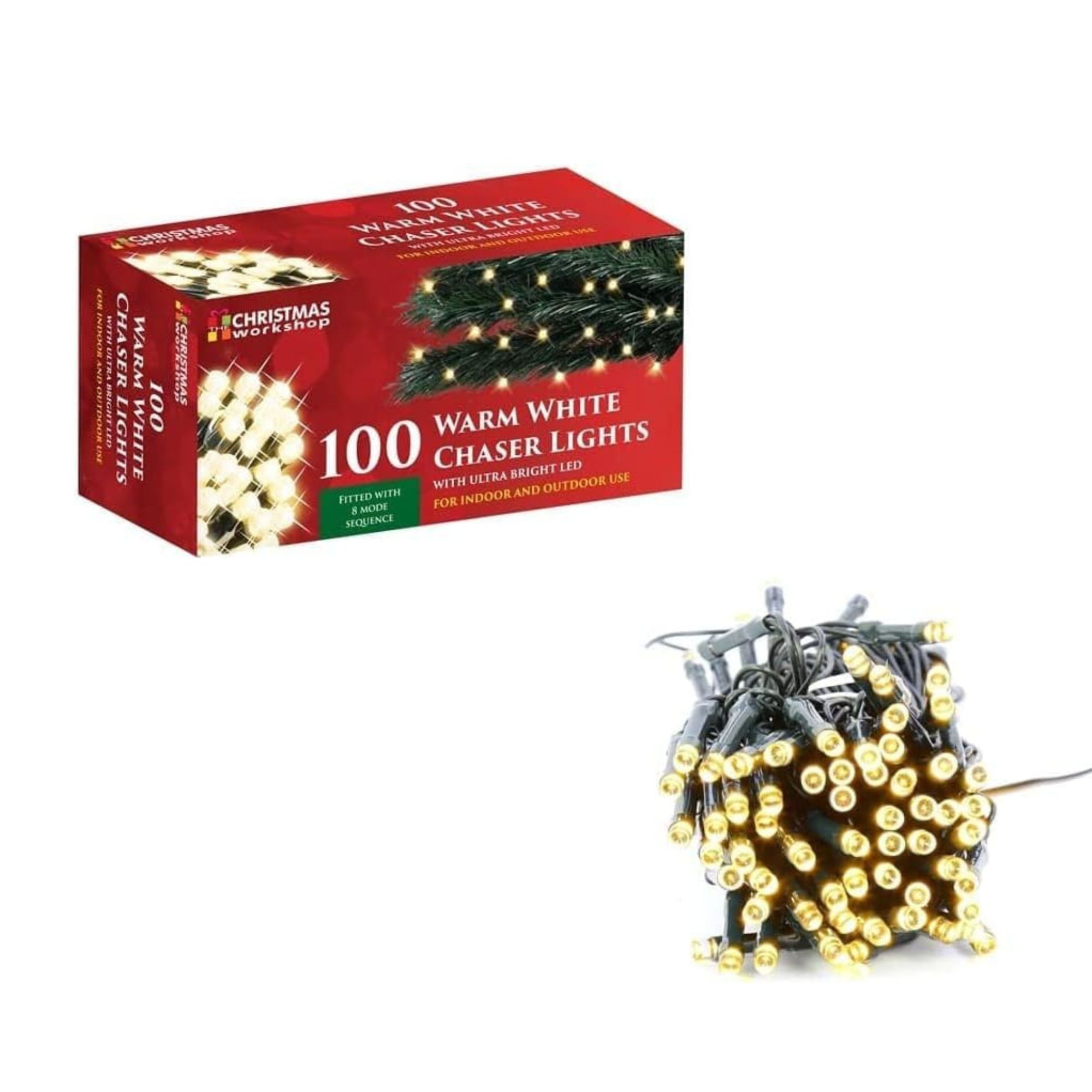
The LED Christmas tree lights have over 3,500 reviews on Amazon with an average rating of 4.7 stars out of 5. Plus, they're super affordable.
2. Use battery-powered lights

Although battery-powered lights can sometimes struggle outside in winter, they’re ideal for your indoor Christmas tree. They can also cut the cost of how much Christmas tree lights cost to run, too.
Connor Campbell, personal finance expert at NerdWallet recommends opting for battery-powered Christmas lights for those who 'have stashes of batteries hidden in drawers.' If you're looking for a reason to make use of them, there's no greater time than for lighting your tree.
'This means that electricity from the mains power supply isn’t being used, and if you use LED battery-powered lights, they will last longer than incandescent lights, saving you money on batteries in the long run,' he explains.

These battery-operated lights are LEDs and come with a timer so you can ensure that they're never on longer than they need to be. All you need now are some 3x AA batteries.
3. Opt for different settings
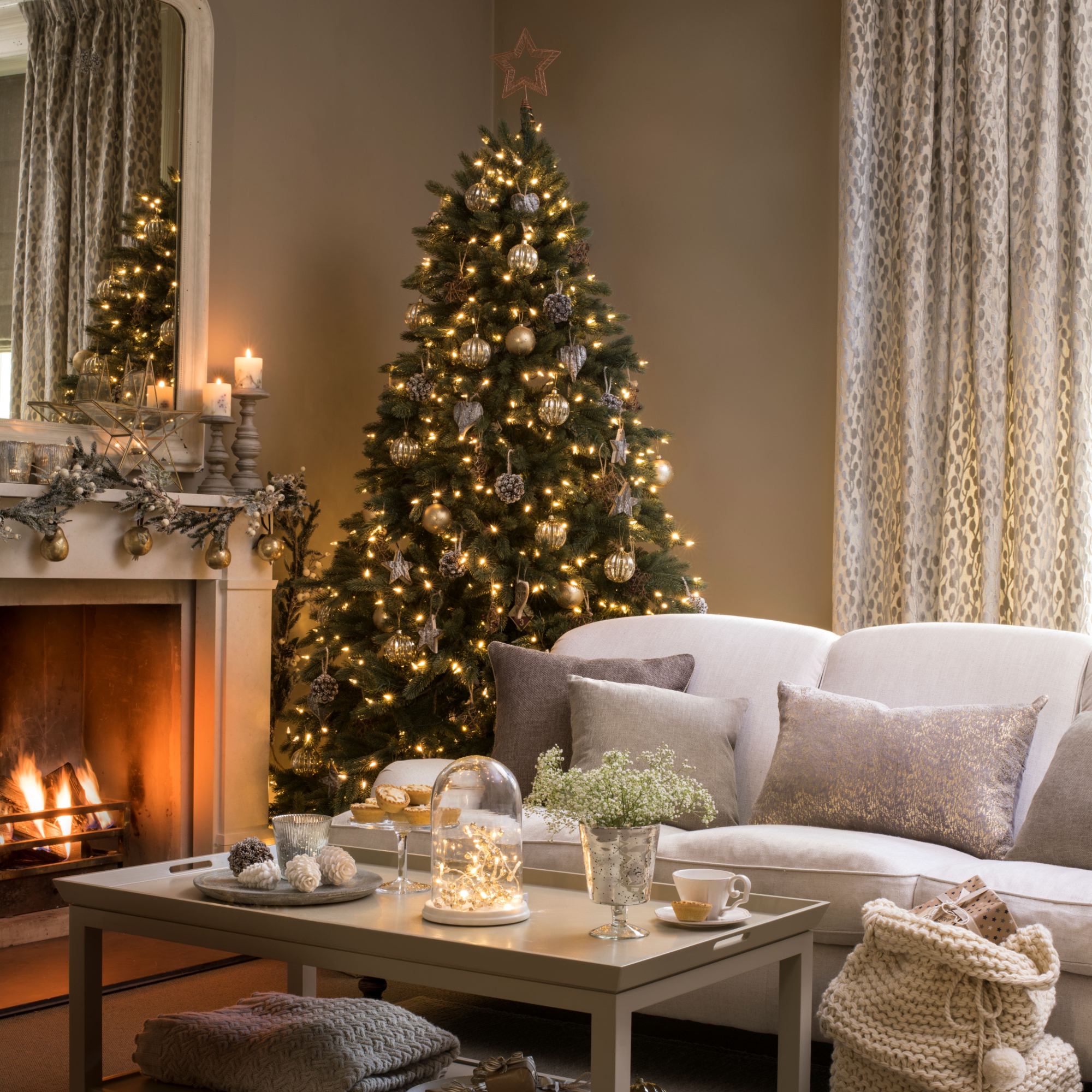
Christmas tree lights have come a long way over the years, with many products offering a variety of different features and settings to allow for customisation. But what most people don’t realise is that this customisation can also cut down energy usage.
'The cost of indoor and outdoor lights differs based on the product, but money can be saved by using differing settings on your lights – perhaps opting for an intermittent 'flashing' setting,' suggests James.
It’s also well worth buying Christmas tree lights that come with a timer so you can choose how long you keep them on, too. This will come in handy if you forget to turn them off or if you have a full festive social calendar ahead of you.
This is echoed by Amy Mason, Director of Product at Lights4fun, who says, ‘Choosing Christmas lights with a timer enables you to brighten your home during the afternoon and evening, automatically switching off throughout the night to save electricity and battery life.’
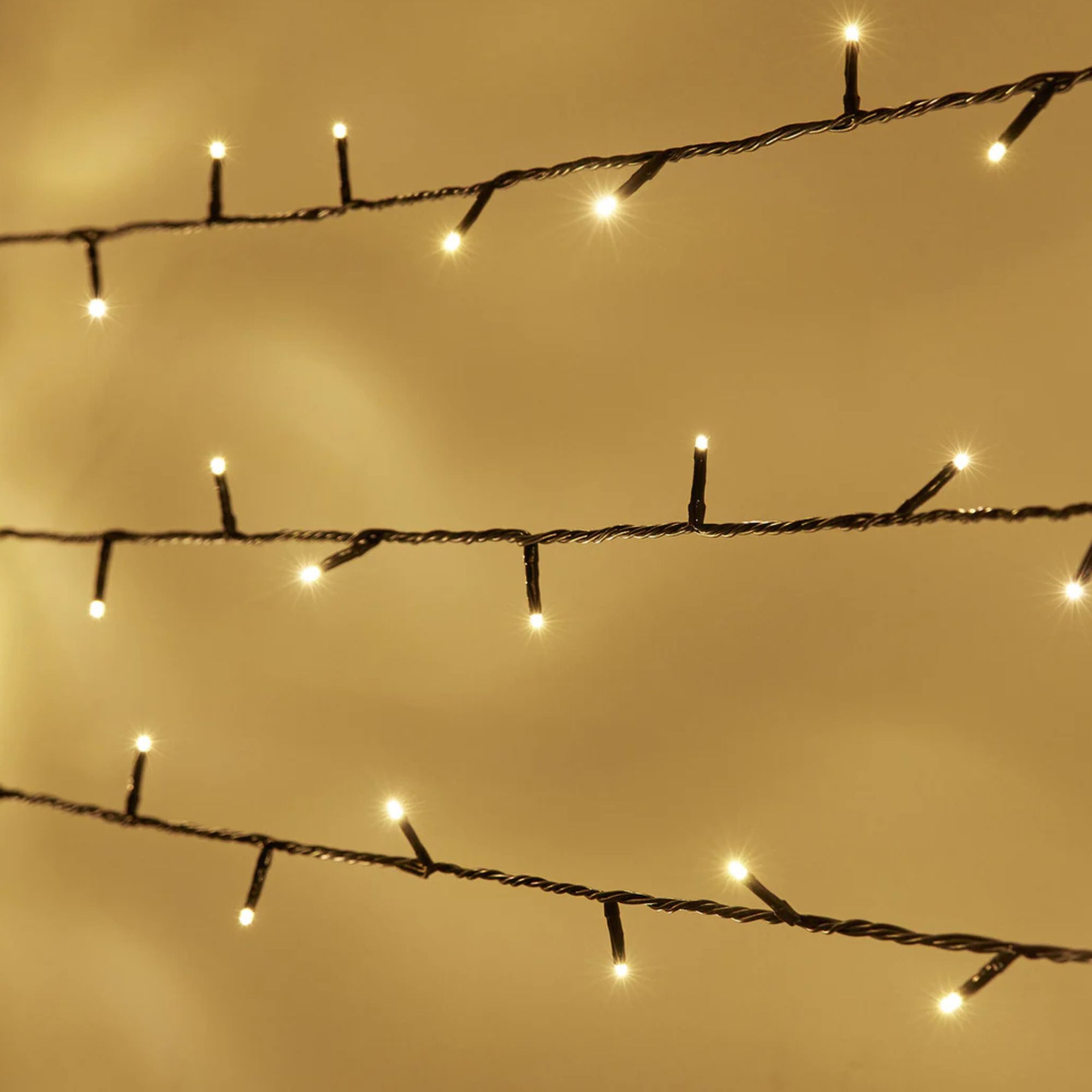
You can choose to power these Christmas tree lights via a plug socket or a battery pack, and they come with 8 lighting settings so you can customise them to your needs.
4. Keep usage to a minimum
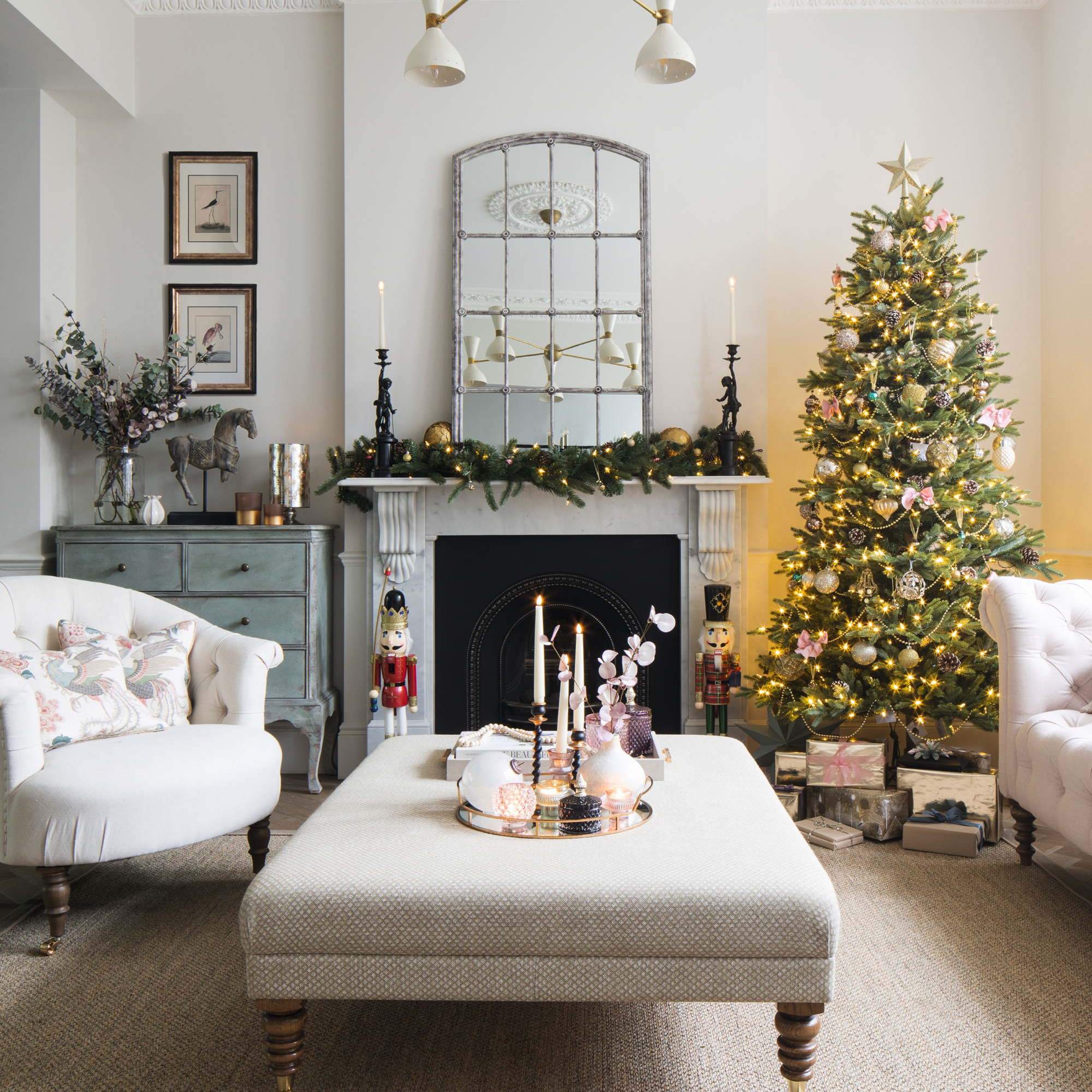
And of course, more than anything, a certain way to save money is by simply reducing your usage to when it's only necessary.
'Saving money isn't solely down to the product though, with other personal traits also playing a huge part,' explains James. 'Most UK households are likely to add additional lights to their home over the Christmas period, either decoratively or on the tree. You should try to keep this usage to a minimum, switching these off in the daytime light, at bedtime, or when you are out of the house.'
Not only that, but exercising safety with Christmas lights is of paramount importance. Be sure to switch the lights off before you go to bed as the cost could triple if you leave lights on overnight, not to mention the potential fire hazard that could arise from that.
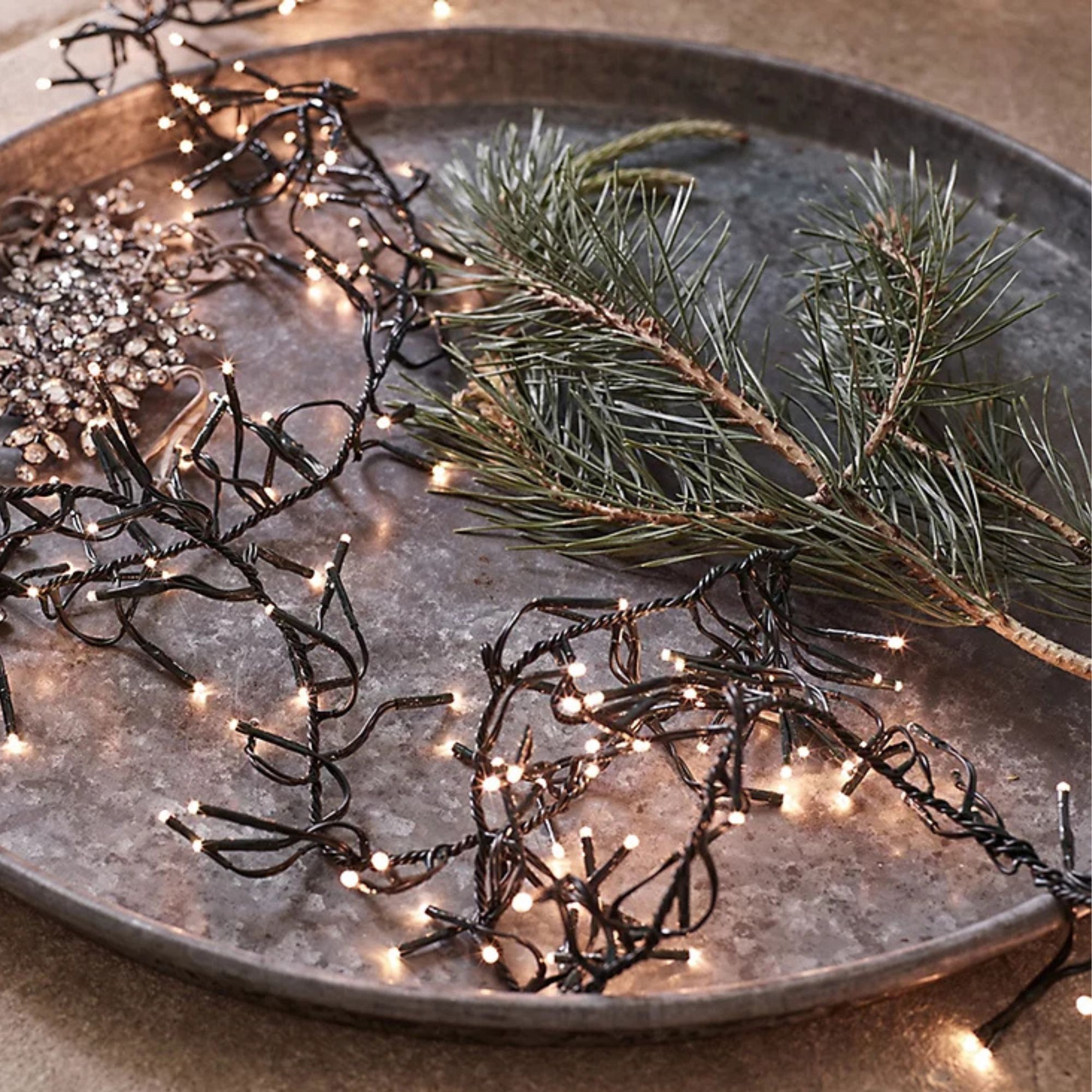
These Christmas tree lights are some of the best you can buy and comes with multiple settings so you can make your lights magically flicker, softly glow, or simply shine.
FAQs
Can you leave xmas tree lights on all night?
Although most modern Christmas tree lights are designed with safety in mind, most experts would agree that you shouldn’t leave Christmas tree lights on all night. Doing so can be a fire hazard as some lights (especially older lights) may overheat when left on too long and ignite. This can be extremely dangerous when they’re wrapped around a real or artificial tree.
There’s also no need to keep them on all night as you won’t be able to enjoy them. So, it’s best to either turn them off when you go to bed or set a timer so they turn off even if you’re not at home.
Do Christmas lights get hot enough to start a fire?
Modern Christmas lights probably won’t get hot enough to start a fire, but older ones may do. Not only that but the fire risk is increased if you plug Christmas lights into an extension lead as the circuits may become overloaded.
If you want to minimise the fire risk when using Christmas lights, it’s best to opt for modern LED lights as they do not get as hot as traditional incandescent Christmas lights.
So, is the cost to run Christmas tree lights more or less than you thought?

Millie Hurst was Senior Content Editor at Ideal Home from 2020-2022, and is now Section Editor at Homes & Gardens. Before stepping into the world of interiors, she worked as a Senior SEO Editor for News UK in both London and New York. You can usually find her looking up trending terms and finding real-life budget makeovers our readers love. Millie came up with the website's daily dupes article which gives readers ways to curate a stylish home for less.
- Jullia JosonJunior Writer
- Lauren BradburyContent Editor (House Manual)
-
 Typhur Dome 2 air fryer review – a glimpse into the future of air frying
Typhur Dome 2 air fryer review – a glimpse into the future of air fryingThe Typhur Dome 2 cooks food brilliantly and has all sorts of benefits, but is it worth the £499 price tag?
By Ellen Manning
-
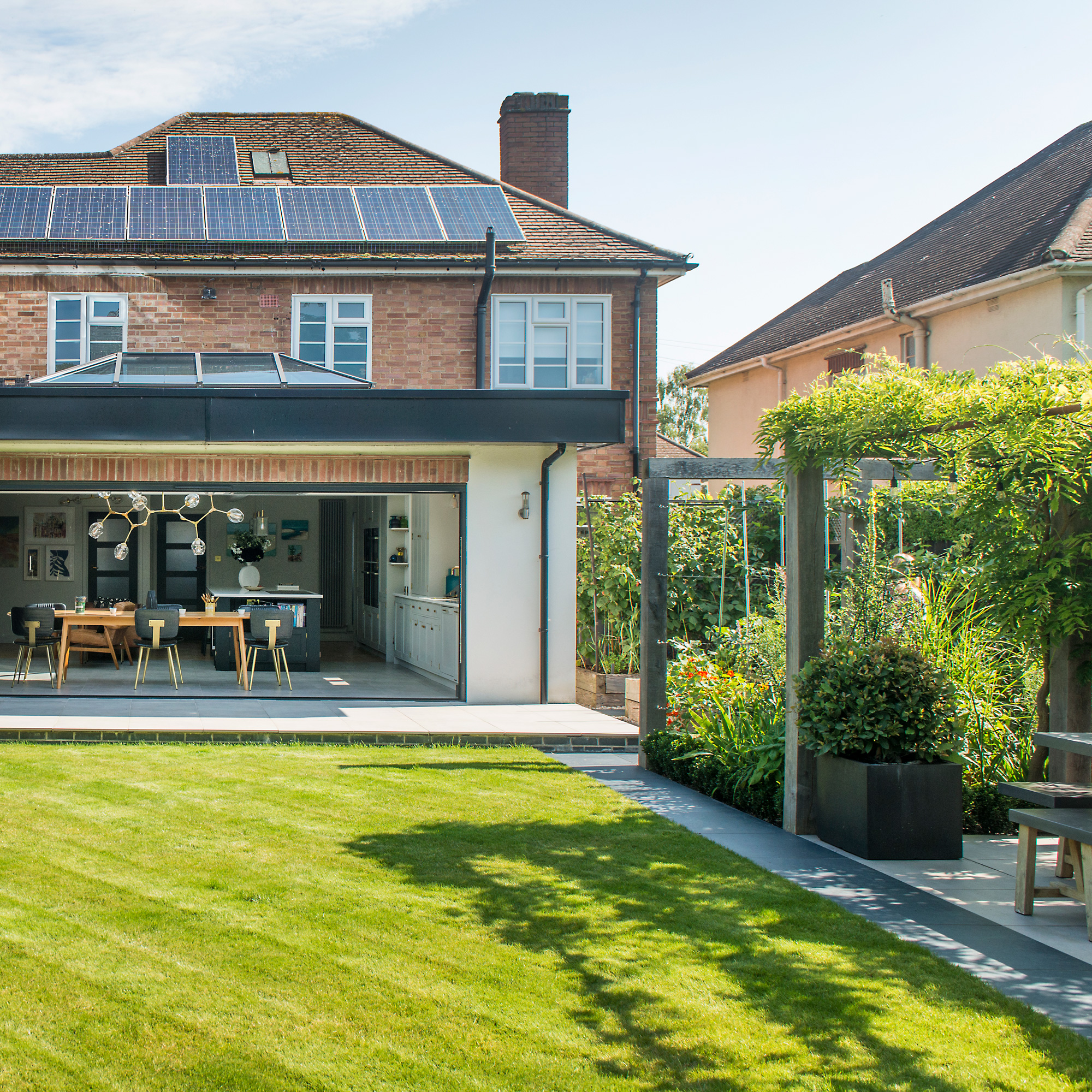 In creating their lush multi-use garden, the owners have cleverly futureproofed the space for years to come
In creating their lush multi-use garden, the owners have cleverly futureproofed the space for years to comeWith a zone for dining, a veg plot, a relaxing sun trap, and space for quiet contemplation
By Ginevra Benedetti
-
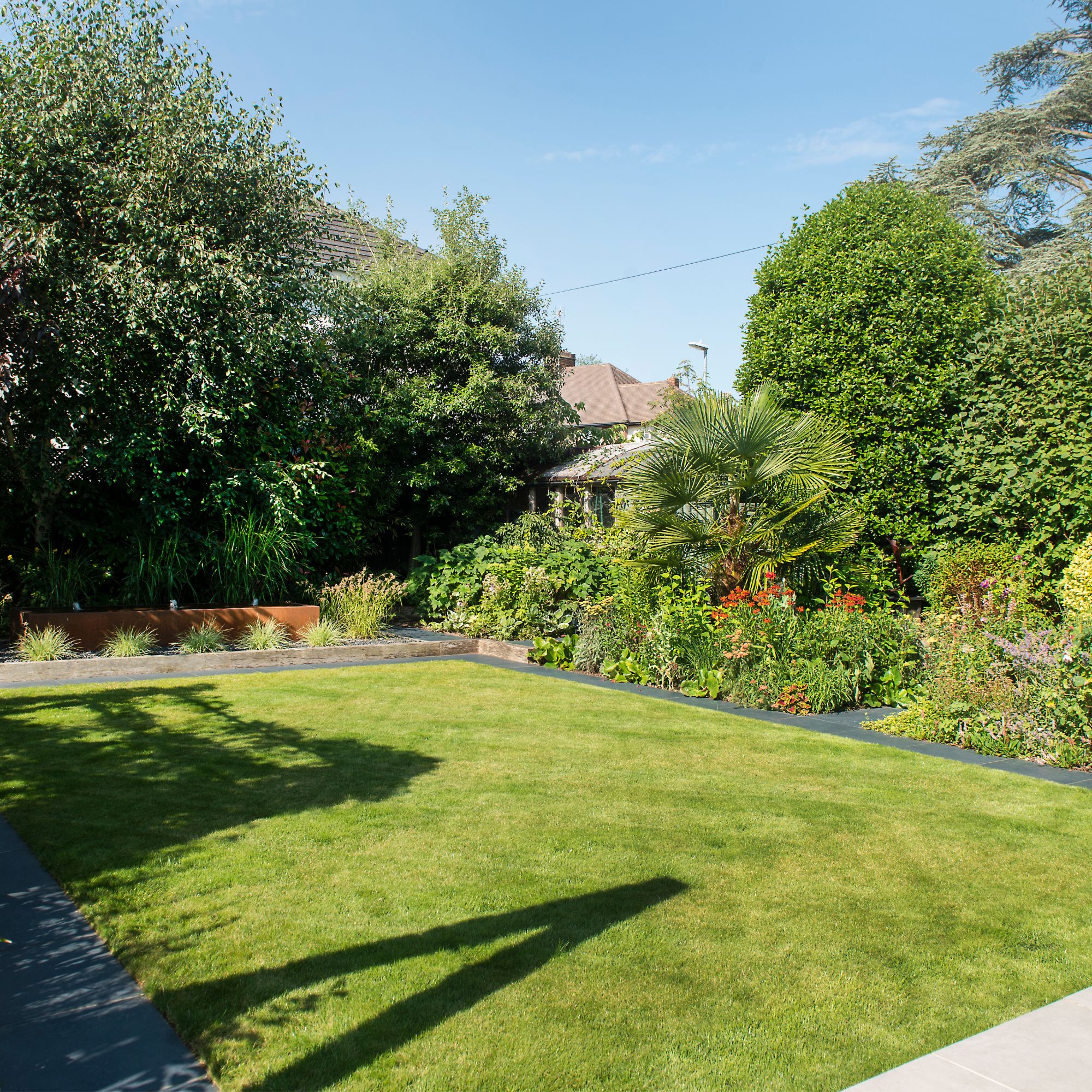 5 reasons why your grass seed isn’t growing and what you can do to help, according to garden experts
5 reasons why your grass seed isn’t growing and what you can do to help, according to garden expertsFor a lush, green lawn, you have to ensure the conditions are just right
By Kezia Reynolds
-
 Aldi is releasing a budget alternative to the cult Joseph Joseph washing up bowl – it’s just £4.99
Aldi is releasing a budget alternative to the cult Joseph Joseph washing up bowl – it’s just £4.99The Joseph Joseph washing up bowl is an Ideal Home favourite - now we can't wait to try Aldi's alternative
By Kezia Reynolds
-
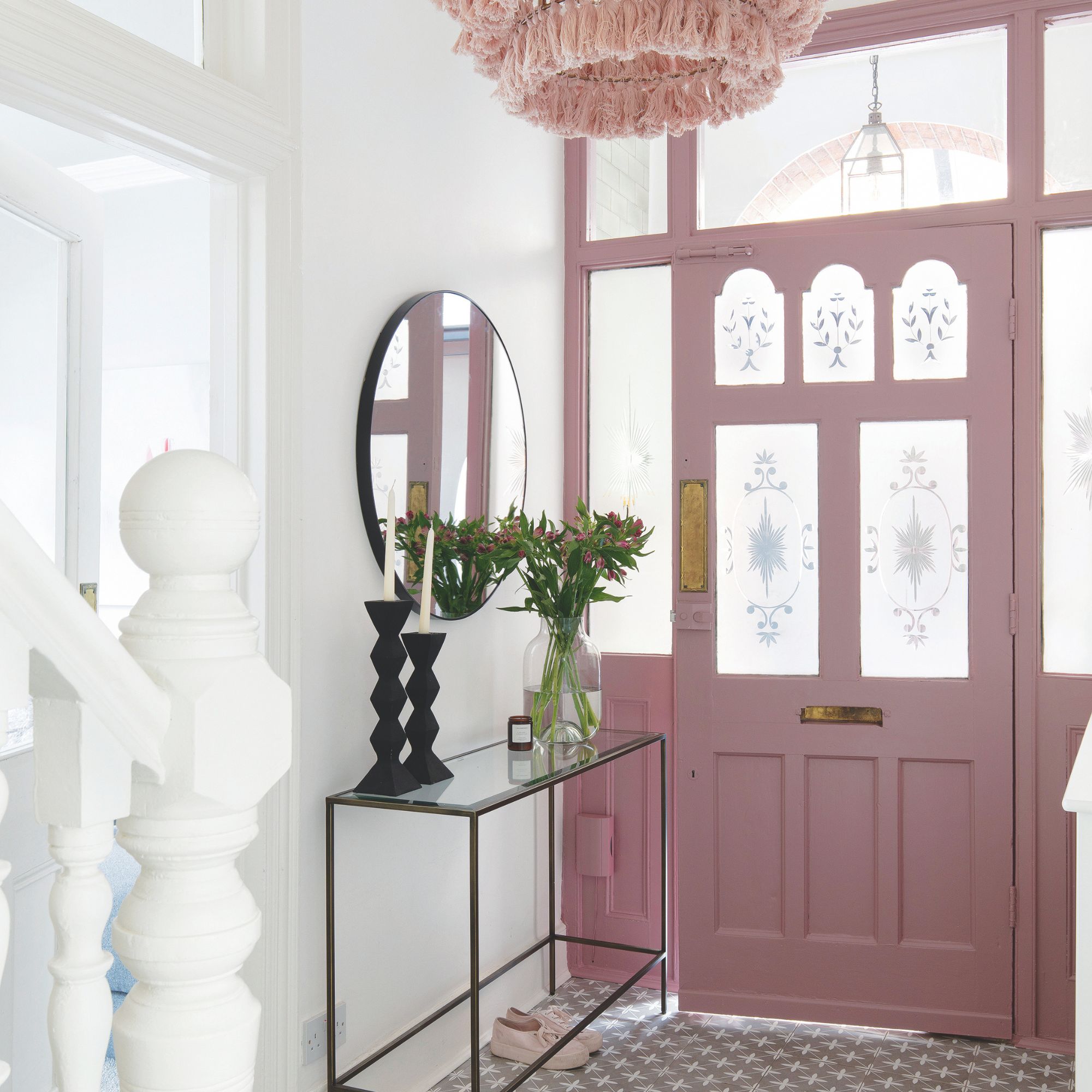 I just bought my first home, and this £10 buy was the very first thing I bought for it to make it feel warmer and secure
I just bought my first home, and this £10 buy was the very first thing I bought for it to make it feel warmer and secureIf I did it all again, this would still be my very first buy
By Rebecca Knight
-
 It’s normally impossible to find a Dyson vacuum for under £250 — but QVC has slashed the price of their bestselling models for a limited time
It’s normally impossible to find a Dyson vacuum for under £250 — but QVC has slashed the price of their bestselling models for a limited timeRun don’t walk to pick up the brand’s bestselling model for under £230 before it sells out
By Lauren Bradbury
-
 Catherine Zeta-Jones has revealed the cleaning product she swears by to keep her home fresh - and it’s just £8 on Amazon
Catherine Zeta-Jones has revealed the cleaning product she swears by to keep her home fresh - and it’s just £8 on Amazon'I use it on my counters. I use it on my walls. I use it on my doors. When I smell it, I know my house is clean.'
By Kezia Reynolds
-
 I tested the 12L Challenge dehumidifier in my damp Victorian home over winter — I haven’t spotted any signs of mould for the first time in five years
I tested the 12L Challenge dehumidifier in my damp Victorian home over winter — I haven’t spotted any signs of mould for the first time in five yearsThe Challenge 12L dehumidifier doesn’t have too many bells and whistles, but I can already see the difference it’s made to my damp home
By Lauren Bradbury
-
 What is boiler flow temperature? Heating experts urge you to check yours now as you could be overpaying on your energy bills
What is boiler flow temperature? Heating experts urge you to check yours now as you could be overpaying on your energy billsTurning this little-known number down just a few degrees can result in some serious savings
By Lauren Bradbury
-
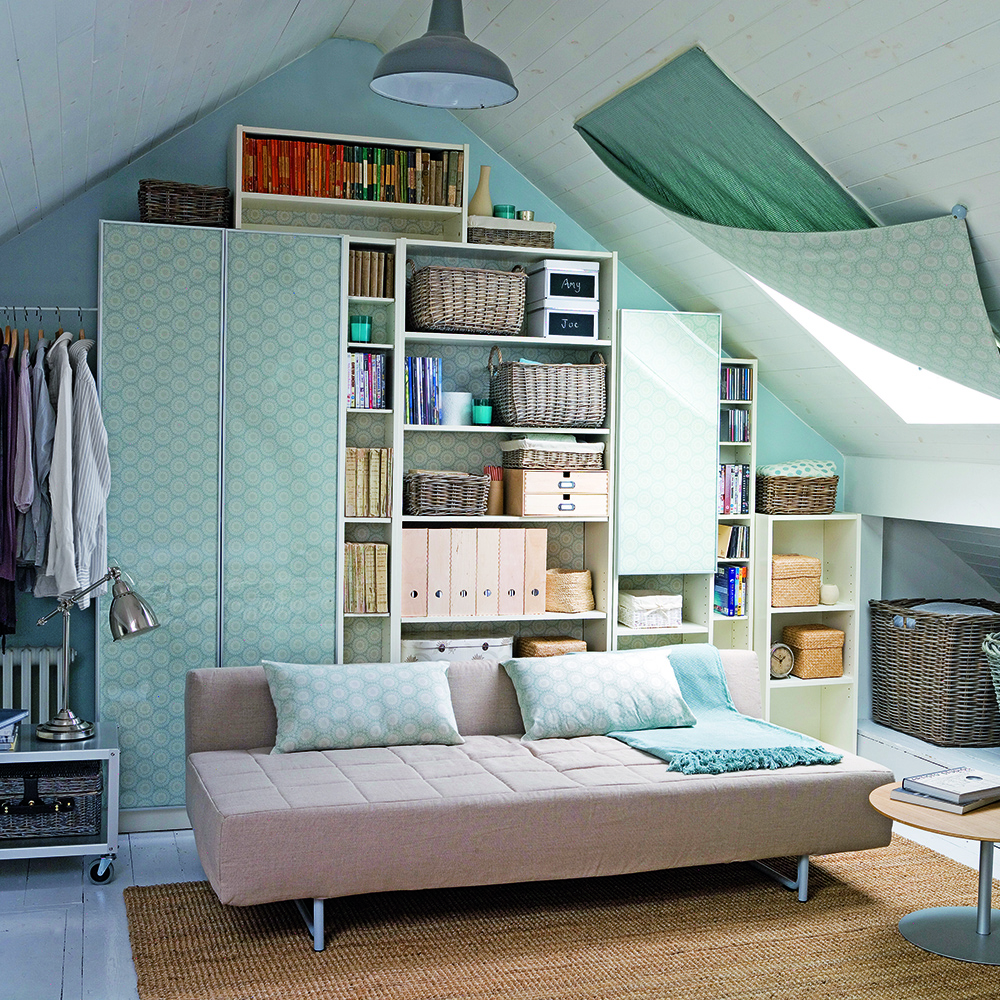 Stacey Solomon has shared 5 nifty wardrobe storage hacks to make getting ready in the morning easier — and they're genius
Stacey Solomon has shared 5 nifty wardrobe storage hacks to make getting ready in the morning easier — and they're geniusThese five wardrobe storage hacks are a gamechanger
By Katie Sims
-
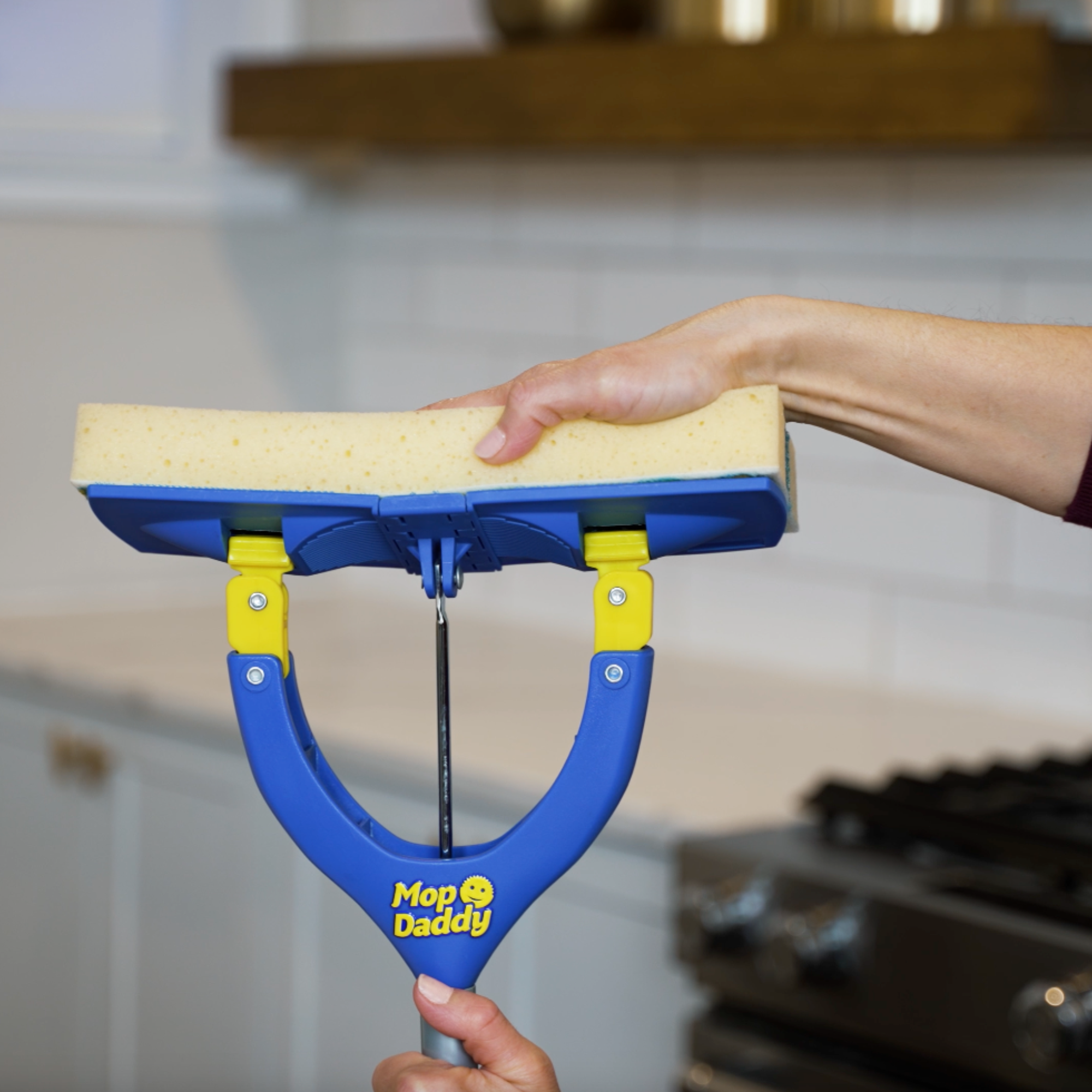 Cult cleaning brand Scrub Daddy has just launched a brand new butterfly mop — could it be the ultimate solution for banishing stubborn marks on your floor?
Cult cleaning brand Scrub Daddy has just launched a brand new butterfly mop — could it be the ultimate solution for banishing stubborn marks on your floor?We're obsessed with all things Scrub Daddy
By Kezia Reynolds